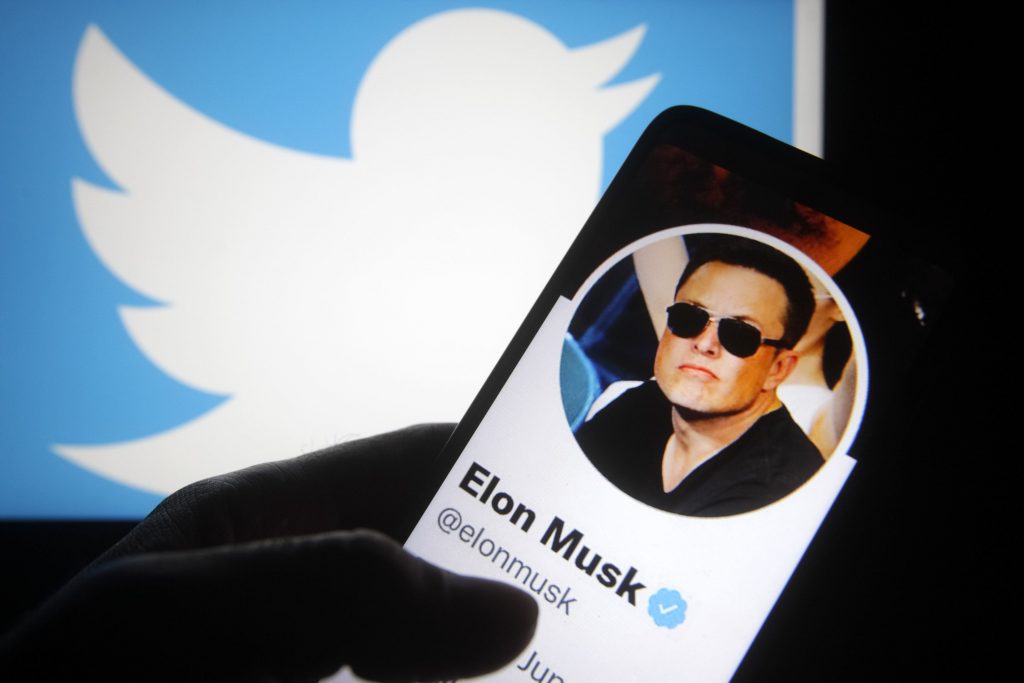- Elon Musk's Twitter followers are likely 70% fake or spam accounts, two research groups says.
- Their analysis flagged users based on 17 warning signals that point to suspicious accounts.
- This comes as Musk disputes Twitter's estimates that fewer than 5% of its accounts are fake.
More than 70% of billionaire Elon Musk's 93 million followers on Twitter are likely fake or spam accounts, according to a joint audit by two research groups published Sunday.
The two groups, SparkToro and Followerwonk, said their definitions of "fake" and "spam" accounts might not be the same as Twitter's.
They said they used a system of 17 warning signals, based on an algorithm that ran through 35,000 fake Twitter accounts bought by SparkToro and 50,000 accounts the teams marked as non-spam.
If one of Musk's followers was flagged for multiple spam signals, they graded it as low quality or fake, they said.
Fake accounts by the numbers
Analyzing all of Musk's nearly 100 million followers, they found that 73% have spam-correlated keywords on their profiles and that 71% use locations that don't match any known place name.
And 41% of these accounts use display names that match spam patterns, they said. Notably, 69% have also been inactive for more than 120 days, the groups added.
The research groups also pointed out how 83% of Musk's followers had a "suspiciously small number of followers," and 78% follow an "unusually small number of accounts."
SparkToro's Rand Fishkin told Insider that what defines "small number" depends on the algorithm.
"For example, an account that's older or that tweets more may have a higher threshold, versus a newer account that tweets less and has a lower one," he wrote in an email.
Other metrics the teams used include the age of the Twitter account, how many tweets it's made over an extended period of time, and whether it uses Twitter's default profile picture.
As such, SparkToro said it defines fake accounts as "those that do not regularly have a human being personally composing the content of their tweets, consuming the activity on their timeline, or engaging in the Twitter ecosystem."
On the other hand, Twitter defines monetizable daily active users as "people, organizations, or other accounts who logged in or were otherwise authenticated and accessed Twitter on any given day" through its paid products or platforms that show ads, according to the company's SEC filing for Q1 2022.
The company hasn't publicly revealed its full method for classifying fake or spam accounts.
SparkToro wrote in its analysis that some of the "fake accounts" according to its definition aren't necessarily problematic, such as bots that aggregate front page news stories or ones that tweet photos and links from restaurants around the world.
But it said most of the spam accounts it flagged are guilty of peddling propaganda and disinformation, pushing phishing attempts or malware, manipulating stocks and cryptocurrencies, and trying to harass other users.
It also noted that its analysis could be undercounting active users who don't tweet anything but browse their timelines, and that it also may not be flagging some sophisticated spam accounts.
Still, the research groups said their analysis leans on a "conservative" estimate of what a fake or spam account is.
Musk's Twitter bot debate
The assessment comes as Musk said on Friday that he's pausing his $44 billion purchase of Twitter until it proves the accuracy of its claim that less than 5% of its users are fake.
His announcement prompted a heated online exchange between him and Parag Agrawal, Twitter's CEO, in which the latter defended Twitter's numbers and tweeted that it suspends half a million spam accounts a day.
Musk responded with a poop emoji and questioned how advertisers with Twitter would know what their money gets them. One analyst firm said Musk's apparent hesitancy to buy the platform might be a ploy for him to negotiate a lower price or back out of the deal.
But Twitter said on Tuesday that it's remaining firm on the price originally agreed with Musk, at $54.20 a share.
The Tesla CEO and founder recently acknowledged that his own Twitter account's numbers may be inflated.
Speaking on Monday at a tech conference in Miami, he pointed out that one of the most-liked tweets on the platform (his own tweet about buying Coca-Cola) has 4.8 million likes compared to Twitter's estimate of 217 million total active users.
—Elon Musk (@elonmusk) April 28, 2022
Musk said his worry lies with whether Twitter's count is incorrect by "an order of magnitude."
"Something doesn't add up here, and my concern here is not is it 5, or 7 or 8%, but is it potentially 80% or 90% bots?" he said.
SparkToro and Followerwonk's estimates say around 19.42% of active Twitter accounts are likely spam or fake accounts, based on a sample of 44,058 random accounts.
The two groups said it's not unusual for prominent or large Twitter accounts like Musk's to have a high number of fake followers. For example, SparkToro's follower audit tool says that nearly half of the followers on President Joe Biden's Twitter account are fake.
In October 2018, SparkToro also ran an analysis on former President Donald Trump similar to the one conducted on Musk's account and found that 61% of Trump's followers were bots, spam, propaganda, or inactive accounts.
